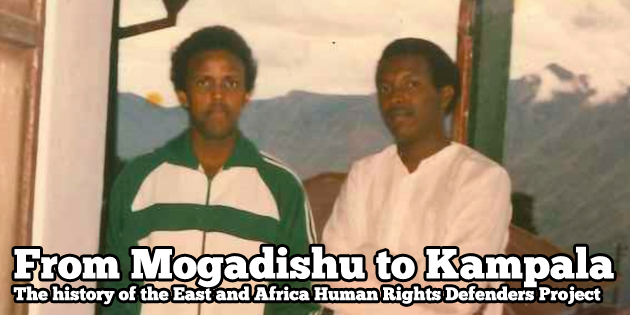Click here to view a short film Defending Defenders: A History of Supporting Human Rights Defenders in Africa for more on the background of EHAHRDP.
“I can remember passing through one warlord’s checkpoint, going to the airstrip, and they asked ‘where is Hassan?’” recalls Hassan Shire, the Executive Director and founder of the East and Horn of Africa Human Rights Defenders Project. The prominent activist from Mogadishu disguised himself as a Somali nomad to flee persecution in Somalia. “I was forced to leave by a combination of warlords and people who became fanatics, deploying violence on anyone who was not agreeing with their point of view.”
Hassan left his homeland in 2001, but he never left his life’s work as a human rights defender.
Hassan’s early activism
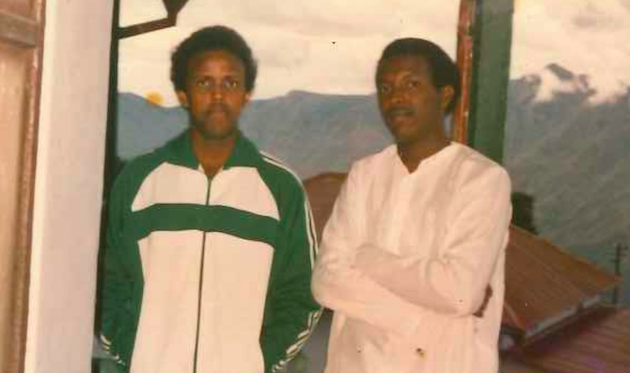
He grew up during the Mohamed Siad Barre warlord period in Somalia, a result of the assassination of President Abdirashid Ali Shermarke in October 1969. A Barre-led military junta took power and executed a bloody coup d’état later that year. The leaders promised free and fair elections would be held within six months, but they never occurred.
Somalia slipped into more than 21 years of military dictatorship: the constitution was suspended; freedom of speech and the press were stifled; political parties and independent associations were banned; and democratically-elected government officials were arrested and detained indefinitely without trials. This period was also characterized by major human rights violations, including unlawful killings, widespread torture, rape and other cruel and inhumane treatment of anyone opposed to the dictatorship.
Hassan’s uncle, Dr. Ismail Jumale Ossoble was the only human rights lawyer in Somalia at that time. He was a prisoner of conscience three times, yet he continued to defend victims of the military regime, regularly appearing at the country’s dreaded and controversial National Security Court. “I grew up in that atmosphere and despised the dictatorship,” he explains. “I was lucky to be part of a community where the consciousness of liberty and freedom was very much alive and it has never been broken.”
Though he was still a boy, Hassan helped his uncle engage with major international human rights organizations, like Human Rights Watch and Amnesty International, for which Dr. Ossoble was the main Somali contact during the 1980s. He remembers delivering documents to human rights officials and helping with administrative tasks, eager to support his uncle’s work.
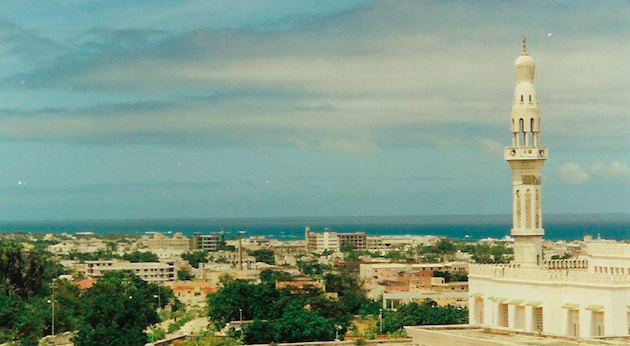
In eighth grade, Hassan started his own outspoken activism. He was a student leader who excelled at his high school, attracting his peers, including children of the military junta, to participate in theatre and song to promote human rights and an end to the military dictatorship. He continued his academic career in India, where he completed a master’s degree in political science and economics at Delhi University in 1990. For the following three years, he worked as an economics teacher in Male, Maldives.
Once Hassan returned to Somalia, he and the widow of his late uncle, Mrs. Mariam Hussein Owreeye, co-founded the Dr. Ismail Jumale Human Rights Centre, in 1996, to continue the work of their beloved activist. The Centre was the first independent human rights organization in Somalia, establishing a community of dedicated activists and performing impactful activism.
As the Centre’s co-founder and co-director, Hassan documented and conducted impartial monitoring of human rights violations during what he remembers as an extremely violent period. He and his team released numerous critical reports on and appeals against rights violations, negotiated with faction leaders, and mobilized public support for human rights, through their annual Human Rights Day in particular.
The organization also worked with other groups of and individual activists through the Peace and Human Rights Network that Hassan also established in Somalia. That helped create strong partnerships between the Human Rights Centre and the United Nations, European Union agencies, foreign embassies, international human rights organizations, and the Somali diaspora. Much of what the Dr. Ismail Human Rights Centre, which Amnesty International described as a “unique organization, which has had a vital role in creating human rights awareness in Somalia,” achieved came from Hassan’s initiative, skills and dedication to human rights work. As the Centre’s co-director for six years before going into exile, Hassan was Amnesty International’s principle research contact for Somalia. The international organization described him as a “most valuable” resource and an “outstanding participant” at its workshops in Kenya, to promote human rights.
“Hassan is a great leader,” Faiza Mohamed asserts. She is a Somali human rights defender who helped develop the Peace and Human Rights Network. “He’s true to his principles of human rights, always working for disadvantaged people.” Hassan had to leave Somalia because he was threatened, but he has never stopped fighting for the rights of others, which I admire, she says. He has also returned to Somalia many times, since leaving the country in 2001, and remains well connected with Somalis there and around the world, she commends.
Fleeing Somalia
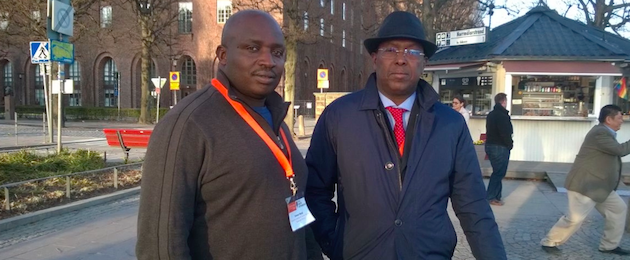
After Hassan’s house was directly shelled while he and his family slept, and warlords began actively hunting him to persecute him for his activism, he decided to leave his homeland. He flew to Kenya, but found few mechanisms there to protect human rights defenders, which left him vulnerable. “Canada came to my rescue,” Hassan says, describing the political asylum he received.
“Without shoes, I walked onto snow in order to say ‘what is this safety?’ I’m not safe when my colleagues, my friends – from Eritrea, from Ethiopia, from Somalia, from Kenya, from Sudan – are not being protected,” he says. He remembers arriving in Canada on a Friday and starting voluntary work on refugee matters at Amnesty International in Toronto on the following Monday.
With a rich and internationally recognized background in activism, Hassan was influential in developing the United Nations Declaration on Human Rights Defenders in 1998, on the 50th anniversary of the Universal Declaration on Human Rights. Still, he and other activists found that the rights protected by the new declaration did not trickle down, leaving him no choice but to flee Somalia.
“[The Declaration] cannot address local needs and realities,” Hassan says of his experience. “‘What can you do as an individual?’ was the question I asked. ‘How can you bridge that gap?’” So I worked with Amnesty International to “conceptualize an idea of how and where the protection of human rights activists can take place [in Africa]” so they can stay in their countries and regions and continue local and grassroots activism.
Gaps in human rights activism
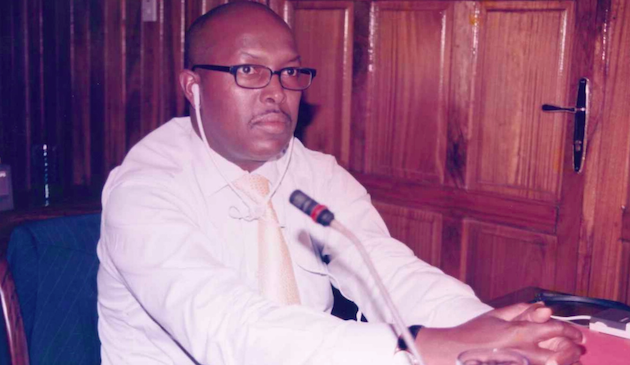
“I had to leave my country because it was not safe to be here,” Kamau Ngugi, a human rights defender from Kenya, says, echoing the issues Hassan faced. Kamau also sought asylum in Canada following the intensifying threats he faced in his East African country.
“The biggest challenge we have as human rights defenders is that not all of us can get the opportunity to get out and be safe outside [our country]. So we had to fight to see: ‘can there be a mechanism whereby people can be safe within their country?’ and that is the whole discussion,” says Kamau. I remember discussing this with my friend Hassan Shire. We met when he picked me up at the airport on behalf of Amnesty International. We were two lonely human rights defenders in Canada during a cold winter season. “It was so cold and one of the things that we had in common was that here we were so lonely, so cold, and yet our countries around that time were so warm, ‘what can we ?’”
We were miserable because we felt there was some human rights work we had not done, Kamau explains. Above all, we wanted to fill the gaps in activism that forced us to flee our countries – the gaps in protection.
“I remember that discussion”, he says. “I was surprised by Hassan, a few months later, telling me ‘look, I’ve succeeded in coming up with a program and we are going to start it in Kampala for human rights defenders to see what we can do to protect them from within the region so that they don’t have to suffer the kind of loneliness, the kind of feeling uprooted that we felt by being outside of the place of action.’”
Working towards safer activism
The program Hassan developed was the East and Horn of Africa Human Rights Defenders Project (EHAHRDP). In June 2002, ahead of the G8 world leaders’ meeting, Hassan participated in the Group of Six Billion People’s Summit at the University of Calgary in Canada. He joined other members from Amnesty International and activists from around the world to discuss the gaps in protection and support that he, and others, faced as human rights defenders.
York University, in Toronto, agreed to fund research into the issues. “When I arrived in 2004, there was one small research project that was located here – the East and Horn of Africa Human Rights Defenders Project,” says Susan McGrath, who was the director of the university’s Centre for Refugee Studies until 2012. “The project had a very modest amount of funding, but it was an opportunity for Hassan to map and do some research to look at … who was doing work on human rights defenders in East Africa,” she explains.“He just kept building on that. So a year later, he was opening up his offices in Kampala,” she says. “It was really quite amazing!”
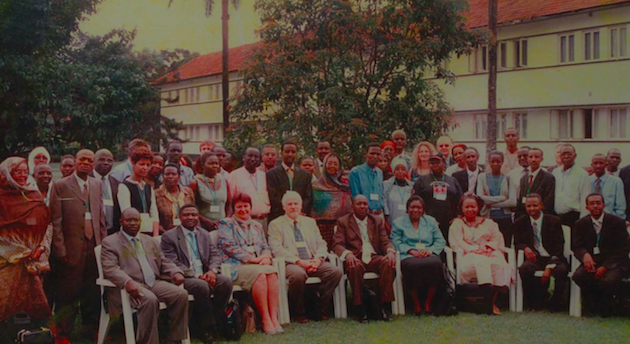
EHAHRDP was founded on November 4, 2005, in Kampala, Uganda, where Hassan believed the mandate would be most impactful – in a stable country easily accessible to HRDs in the sub-region.
The Project’s mandate is “preventative and reactive,” Hassan explains. It provides physical security management training and capacity building to human rights defenders before and after they face risks or threats in their countries or areas of work. EHAHRDP also provides protection and emergency evacuation and support to defenders 24 hours a day. The organisation now has 25 full-time African and international staff members and many volunteers who work tirelessly to make the lives of HRDs safer so that they can do effective long-term activism.
A pioneering mandate
EHAHRDP’s “capacity for supporting people during periods of emergency … is not matched by any other organization in the region,” asserts Eleanor Openshaw, head of regional advocacy at the International Service for Human Rights. “It is fundamentally important” because there are contexts in the East and Horn of Africa sub-region that make it immensely difficult to be a defender, she explains.
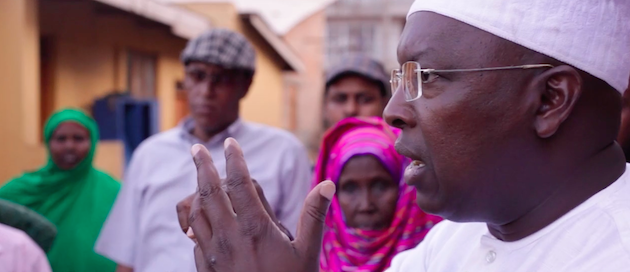
“In Somalia, HRDs and journalists, particularly, continue to face numerous threats and challenges that hamper their work”, says Omar Osman Faruk, an activist and journalist from Mogadishu. “I have been on the hit list for a while with Al-Shabab,” he says, explaining the terrorist organization has targeted him several times. “There are threats. There are arrests. There are killings. There are legal challenges.”
Defenders at-risk need a lot of support: somewhere to go if they have to flee their countries, logistical and financial assistance, and advice and expertise to overcome the risks and challenges as well as mitigate them in the future, Eleanor explains. Those are just some of the services the EHAHRDP offers to HRDs. “It is absolutely essential … I cannot imagine that not existing.”
That, however, is what Hassan experienced: “the existence of the East and Horn [of Africa Human Rights Defenders Project] … if it could have been at the time when I was working in Somalia, my belief is that I could have continued the work I was doing there,” he says of his personal inspiration for establishing an organization that provides HRDs the tools to pre-empt risks.
The tools the EHAHRDP offers HRDs are important because leaving one’s country or region, especially, is a last resort for human rights defenders, says Eleanor from the ISHR. The most effective activism usually occurs on the ground, from within the places and communities most affected by violations, she says. Supporting HRDs so they can stay in their regions safely, instead of relocating to foreign countries or continents for asylum, is the pioneering work of the EHAHRDP.
The organization helped Kenyan activist, Gitahi Githuku stay in East Africa when the 2007/2008 post-election violence and his human rights work put him under threat. He moved to Uganda temporarily, where he received protection and security training from the EHAHRDP. “Staying in the region … is the most important thing so that you can show that the human rights defender is right, their space can never be taken away, and that the level of impunity cannot continue.”
Faiza Mohamed, like Paul and Hassan, is another activist who left their country when it became especially unstable for human rights defenders. The Somali HRD, and board member of the EHAHRDP, says that having the organization’s protection, physical and digital security management services and sub-regional network would have been helpful. “It was difficult and dangerous to operate as a human rights defender during the warlord period,” she says. “Having a network of activists who can give you refuge when you need it and watch out for you is critical for people who are in isolated places like Mogadishu … it’s important for someone to have your back.”
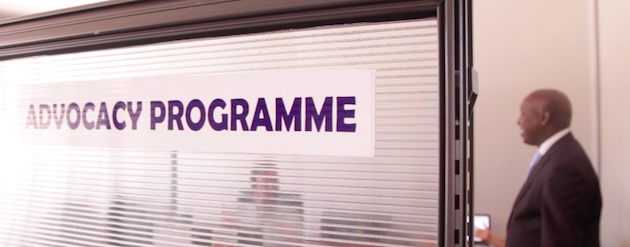
Activists in Somalia, and elsewhere, still have to improvise in order to survive, Hassan says, stressing the continuous need for the EHAHRDP’s services and mandate to protect activists. “I have been inspired by what I have been through, sneaking out of my country disguised as a Somali nomad,” he says. “I was a refugee myself … so I always recognize and really appreciate people who are in that position or are facing threats in their countries.”
Today, his inspiration for continuing the EHAHRDP’s work extends well beyond his story, Hassan says: “it’s the thousands of human rights defenders whose lives we have touched and made one day safer than before. Period.”
Click here to view a short film Defending Defenders: A History of Supporting Human Rights Defenders in Africa for more on the background of EHAHRDP.
EHAHRDP 10 year anniversary generously supported by Austrian Development Cooperation and SIDA.

